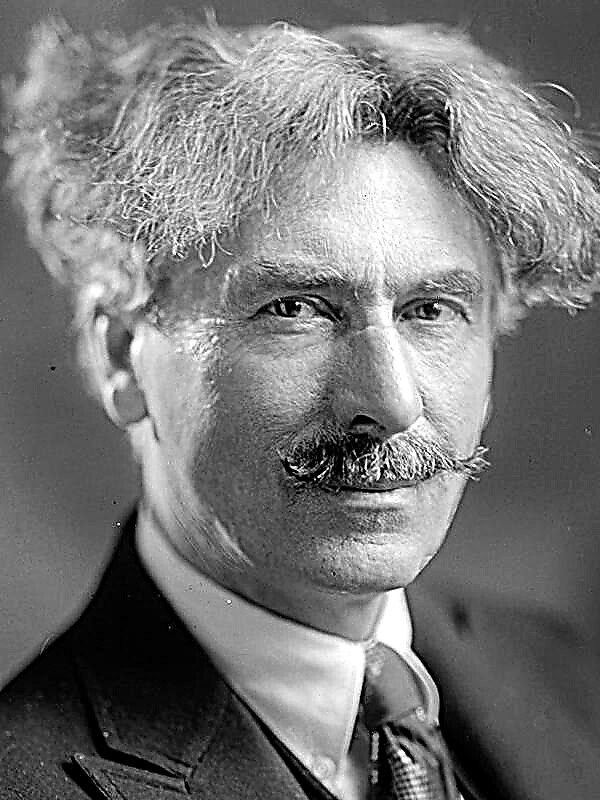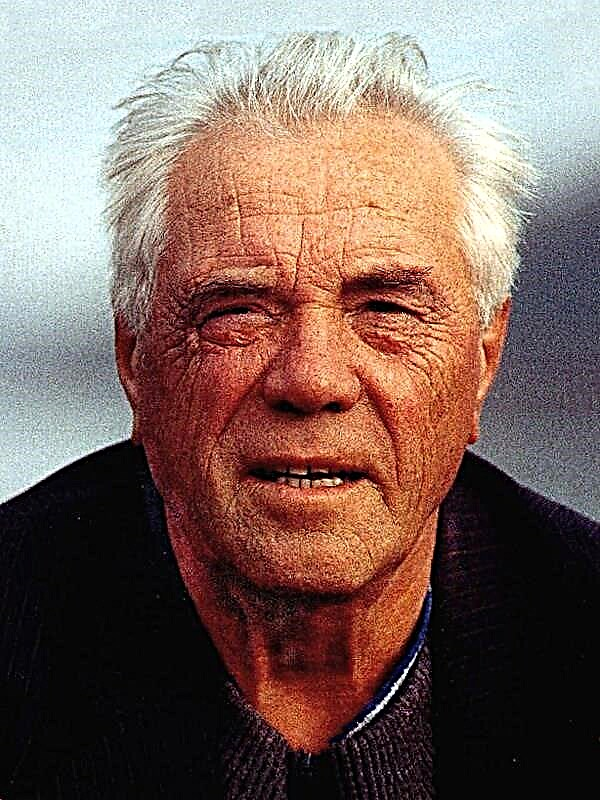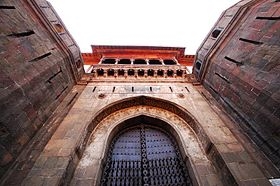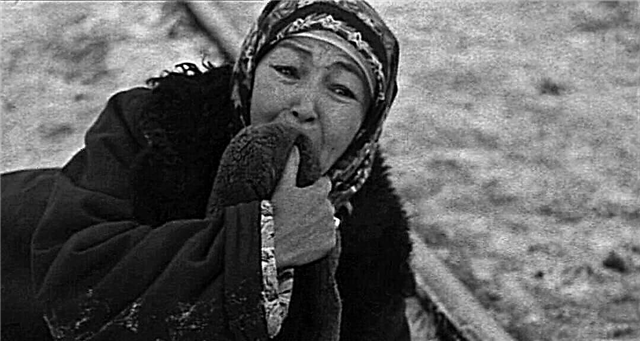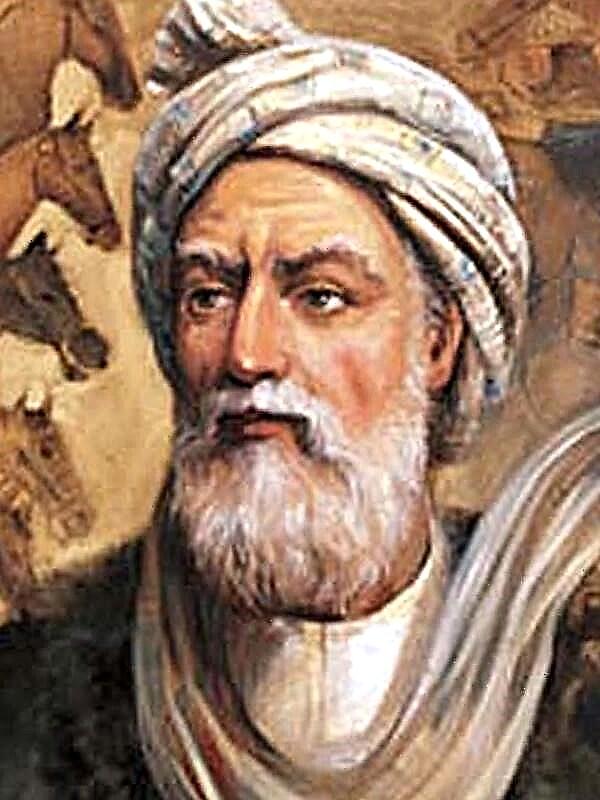Letters to Aisse - the recognized "little masterpiece" of French prose. The fate of their author is amazing. In the spring of 1698, the French diplomat Count Charles de Ferriol bought for a thousand and five hundred livres in the Istanbul slave market a Circassian girl of about four taken prisoner during one of the Turkish raids. They said that she was from a noble family. In France, little Gaide was baptized and named Charlotte-Elizabeth, but continued to be called Gaide or Aida, which later turned into Aissa. For several years, the girl was brought up in the house of the wife of the younger brother of the diplomat - the smart, active, powerful Maria-Angelica de Ferriol, nee Guéren de Tansen. But then a diplomat who belonged to a young Circassian with paternal tenderness and ardor of a lover returned to France, and Aissa was forced to stay with Ferriol until his death (1722), spinning, however, in a brilliant circle of noble and talented people. Having gained freedom, Aisse until the end of her life did not leave the house of Madame de Ferriol, who had become almost her family.
In the dissolute, immoral Paris, Aissa in 1720 meets the celibate knight of the Order of Malta, Blaise-Marie d'Edie (c. 1692-1761). They are connected for life by a strong and lasting feeling, which they keep in deep secret. The birth in 1721 of their daughter Selini, who later became Viscountess de Nantia, is also surrounded by mystery. In 1726, Aisset met the 58-year-old wife of the eminent and wealthy Geneva citizen, Julie Calandrini (c. 1668–1754); the firm moral principles of this lady make a deep impression on the “beautiful Circassian woman,” and for the last seven years of her life, Aissa has been in correspondence with Mrs. Calandrini, trusting her elder friend with all her thoughts and feelings. Aisse died in 1733 from consumption. Shocked Chevalier d? Edi remained faithful to his love until the end of his life, raising his daughter in the same spirit. But from oblivion, the name Aisse was saved not by a touching family cult, but by 36 letters discovered after the death of Madame Calandrini and published in Paris in 1787.
In the most refined expressions, Aisset describes her feelings for Mrs. Calandrini: “I love you with the most tender love - I love you as my mother, as a sister, daughter, in a word, as you love everyone to whom you owe love. In my feeling for you, everything is concluded - respect, admiration and gratitude. ” Aissa is happy that others love her older friend for her wonderful qualities of soul. After all, usually “valor and merit ... are valued only when a person is also rich; and yet before true virtues everyone bows their heads. ” And yet - “money, money! How much you suppress ambition! What just do not humble the proud! How many good intentions you turn into smoke! ”
Aisse complains about her own financial difficulties, debts and the complete uncertainty of her financial situation in the future, complains about her deteriorating health, very naturally describing her suffering (“... health is our main asset; it helps us endure the hardships of life. Sorrows act on it is detrimental ... and they do not make us richer. However, there is nothing shameful in poverty when it is the result of a virtuous life and the vicissitudes of fate. Every day it becomes more clear to me that there is nothing above virtue both on this earth and in another world "),
Aisse annoyedly talks about domestic troubles, about the absurdity and miserliness of Madame de Ferriol and the rudeness of her dissolute and cynical sister, the brilliant Madame de Tansen. However, "I am ashamed of my complaints when I see so many people around me who are worth more than me and much less unhappy."The woman warmly mentions her friends - the sons of Madame de Ferriol, Count de Pont-de-Velay and Count Count Argentantale, as well as the charming daughter of Madame Calandrini herself, gently speaks of her maid - a faithful Sophie, who is trying hard to provide materially.
Describes Aisse and Parisian life, creating a vivid picture of the life and customs of the French aristocracy. Gossip, scandals, intrigues, marriage of convenience ("Ah! In what a blessed country you live - in a country where people get married when they are still able to love each other!"), Constant adultery, serious illnesses and untimely deaths; a complete loss of morals (for example, the story of a nobleman’s son who had succumbed to robbers), swarms and conspiracies at court, wild antics of the depraved nobility (“Mrs. Bouillon is capricious, cruel, unbridled and extremely lecherous; her tastes extend to everyone - from princes to comedians ”, - characterizes Aissa the lady who was suspected of poisoning the actress Adrienne Lekuvrer), unlimited hypocrisy (“ Our beautiful ladies indulge in piety, or rather, diligently show it ... they all began to build themselves holy like one ... they left blush that doesn’t color them at all ”), the complete lack of rights of ordinary people (the sad story of a poor abbot who is forced to give poison to Lecouvreur by force; and after the unfortunate man warns the actress, he is put in the Bastille, where he leaves thanks to the efforts of his father, but then without a trace disappears).
And “everything that happens in this state portends its death. How prudent all of you are that you do not depart from the rules and laws, but strictly observe them! Hence the purity of morals. And every day I am am amazed more and more by many bad things, and it’s hard to believe that the human heart would be capable of it. ”
Aissa writes a lot about art, which people of her circle are keenly interested in - about the decoration of interiors, about literature (she mentions several times, for example, the novelty “Gulliver’s Travels” by J. Swift, cites Rousseau’s epigram, and appends the Marquis’s poetic correspondence de la Riviera and ml de Desoulière), but mainly discusses the theater: new plays and performances, sets, acting skills (“An actress playing the role of a lover must show modesty and restraint,” says Aisse. “Passion should be expressed in intonation and the sounds of voices. Excessively harsh gestures should be left to men and sorcerers. ") But bad morals reign in the theater: backstage intrigues, rivalries of actresses, their scandalous novels with nobles, slander and gossip ... Several times, Aissa touches on politics. The woman is shocked by the frivolous attitude of the nobility towards a brewing war; "Circassian" sends her friend a copy of the letter of the Marquis de Saint-Ouler to Cardinal de Fleury. “The glory of the conqueror is nothing before the glory of the peacemaker ... through justice, honesty, confidence, faithfulness to one’s own word, more can be achieved than by tricks and intrigues of the previous policy,” the Marquis says. And Aisset dreams that France will finally find the king and the first minister, who really care about the welfare of their people.
Real life plunges Aissa, wholesome and pure nature, into deep sadness. The Circassian woman never gets involved in any intrigue; she “is just as little inclined to preach virtues as to maintain vices”, admires people with “the most important spiritual qualities”, her intellect and self-esteem, cares about her friends much more than about herself, does not want from anyone to depend and above all else on earth puts execution of his own duty. “Nothing will make me forget everything that I am” obliged to Madame de Ferriol, “and my duty to her. I will reward her a hundredfold for all her cares for me at the cost of even my own life. But...what a big difference it is to do something only out of a sense of duty or at the behest of the heart! ” “There is nothing more difficult than fulfilling one’s duty towards someone whom you don’t love and respect.”
Aissa does not want to deal with "evil and fake people - let them swarm about their own dirt." I firmly adhere to my rule - honestly fulfill my duty and not slander anyone. ” “I have many shortcomings, but I am committed to virtue, I honor it.” It is not surprising that the libertines and schemers are afraid of Aissa; most acquaintances treat her with respect and love. “My doctor is amazing how attentive to me; he is my friend ... everyone around is so affectionate with me and so helpful ... "" All the time that I was in danger ... all my friends, all the servants were crying sobbing; and when the danger had already passed ... everyone ran to my bed to congratulate me. "
Improving health in the village and leading an idyllic life in the lap of nature ("... I live here as if at the end of the world - I work in a vineyard, weave yarn from which I will sew my shirts, hunt birds"), Aisse dreams of getting to her friend - Mrs. Calandrini to Switzerland. “How unlike your city is in Paris! There sanity and good morals reign there, they have no idea about them. ” As for the inhabitants of Paris, "there is nothing in them - neither your adamant honesty, nor wisdom, nor kindness, nor justice. People have all this one appearance - the mask is constantly falling from them. Honesty is nothing more than a word with which they adorn themselves; they talk about justice, but only to condemn their neighbors; under their sweet speeches barbs lurk, their generosity turns into wastefulness, kindness - lack of will. ” Nevertheless, “whom I had occasion to meet in Geneva, corresponded to my initial ideas of life experience. “I was almost the same when I entered the world, not knowing bitterness, sorrows and sorrow.” Now, "I would like to learn to be a philosopher, to be indifferent to everything, not to be upset about anything and try to behave wisely only in order to satisfy myself and you." Aisse sadly acknowledges the corrupting influence of morals in society. “She belongs to those spoiled by light and bad examples, who were not lucky enough to avoid the networks of debauchery,” the woman writes about her friend Madame de Paraber. “She is cordial, generous, she has a kind heart, but she was plunged into the world of passions early, and she had bad mentors.” And yet, Aisse sees the root of evil in the weakness of human nature: “... you can behave with dignity even if you stay in the light, and this is even better - the more difficult the task, the greater is the merit of it”. With admiration he tells the Circassian about a certain impoverished nobleman who, having settled in a modest room, spends the morning reading his favorite books, after a simple, hearty lunch, walks along the promenade, is independent and completely happy.
The standard of moral qualities is for Aissa, Mrs. Calandrini. “You, with your tolerance, with your knowledge of the world, which, however, do not have hatred, with your ability to forgive, in accordance with the circumstances, having learned about my sins, did not despise me. I seemed to you worthy of compassion, and although guilty, but not completely understanding my guilt. Fortunately, my very loving passion gave rise to a desire for virtue in me. " "Do not be the subject of my love is filled with the same virtues as you, my love would be impossible." "My love would die if it were not based on respect."
It is the theme of deep mutual love between Aissa and Chevalier d? Eli that runs through the letters of the “beautiful Circassian woman” with a red thread. Aissa is tormented by thoughts of the sinfulness of this extramarital affair; a woman is trying with all her might to tear out a vicious passion from her heart. “I will not write about remorse that torment me - they were born of my mind; Chevalier and passion for him drown them. "But "if the mind was not able to defeat my passion, it was because only a virtuous person could deceive my heart." Chevalier loves Aissa so much that they ask her what charms she put on him. But - "my only spell is my irresistible love for him and the desire to make his life as sweet as possible." “I do not abuse his feelings. People tend to take advantage of the weakness of another. This art is unknown to me. "I can only do this: to please the one I love so that to keep him beside me is only one desire - not to part with me." Edie begs Aissa to marry him. But "no matter how great the happiness would be to be called his wife, I should love Chevalier not for my own sake, but for his sake ... How would his marriage to a girl without a clan without a tribe react in the world ... No, his reputation is too dear to me and at the same time I'm too proud to allow him to do this stupid thing. What a shame all the talk that would go about this would be for me! And how can I flatter myself with the hope that he will remain unchanged in his feelings for me? "He may someday regret that he succumbed to reckless passion, and I will not be able to live, knowing that through my fault he is unhappy and that he stopped loving me."
However - “cutting alive such a passion and such tender affection, and so much deserved it!” Add to this my feeling of gratitude to him - no, this is terrible! This is worse than death! But you demand that I overcome myself - I will try; only I’m not sure that I will come out of it with honor and that I will remain alive. ... Why is my love forbidden? Why is she sinful? ” “I wish that the struggle between my reason and my heart would end, and I could freely surrender to the joy that only seeing him gives me. But alas, this never happened! ” “But my love is irresistible, everything justifies it. It seems to me that she was born of a sense of gratitude, and I am obliged to maintain the affection of the Chevalier for the dear baby. She is the connecting link between us; this is what makes me sometimes see my duty in love for him. "
With great tenderness, she writes to Aissa about her daughter, who is brought up in a monastery. The girl is “reasonable, kind, patient” and, not knowing who her mother is, she considers the “Circassian” her beloved patroness. Chevalier loves her daughter to the point of madness. And yet Aissa is constantly worried about the future of the baby. All these experiences and fierce internal struggles soon finally undermine the fragile health of the unfortunate woman. She quickly melts, plunging her beloved into despair. “My love for him has never been so fiery, and I can say that on his part she is no less. "He treats me with such anxiety, his excitement is so sincere and so touching that everyone who happens to be witnesses has tears in his eyes."
And yet, before her death, Aissa breaks with her beloved. “I can’t express to you what the sacrifice cost me, for which I made up my mind; she is killing me. But I trust in the Lord - he must give me strength! ” Chevalier humbly agrees with the decision of his beloved. “Be happy, my dear Aissa, it makes no difference to me how you will achieve this - I will reconcile with any of them, if only you would not expel me from your heart ... As long as you allow me to see you, While I can flatter myself with hope, that you consider me the most dedicated person in the world, I don’t need anything else to be happy, ”he writes in a letter that Aissa also sends to Mrs. Calandrini. The Circassian woman herself touchingly thanks her older friend, who made so much effort to guide her on the true path. “The thought of an imminent death saddens me less than you think,” Aissa admits. - What is our life? Like no one else, I was supposed to be happy, but I was not happy. My bad behavior made me unhappy: I was a toy of passions, which ruled me by their own whims.The eternal torment of conscience, the sorrows of friends, their remoteness, almost constant ill-health ... The life I lived was so miserable - did I even know a moment of genuine joy? I could not remain alone with myself: I was afraid of my own thoughts. Remorse did not leave me from the moment my eyes opened, and I began to understand my errors. Why will I become afraid of separation from my soul if I am sure that the Lord is merciful to me and that from the moment I leave this miserable flesh, happiness will be revealed to me? ”

